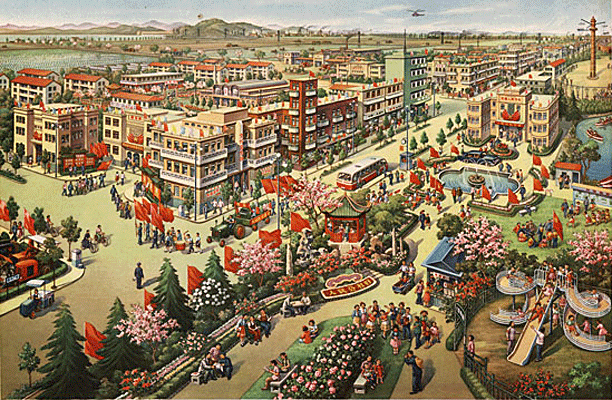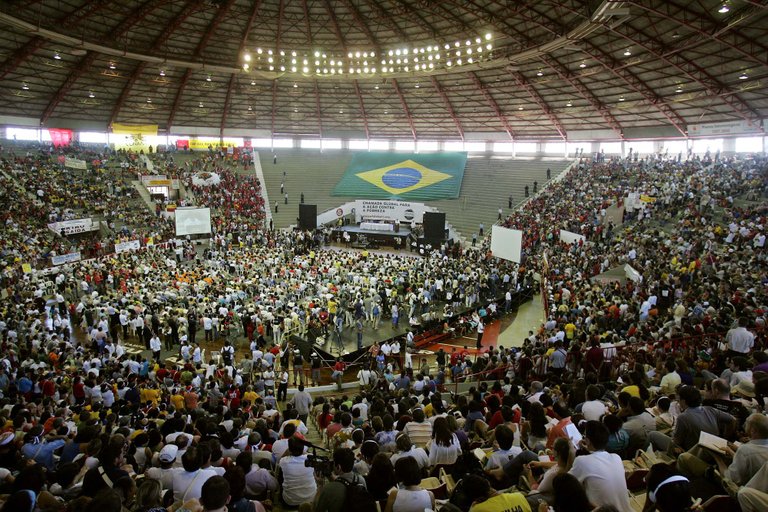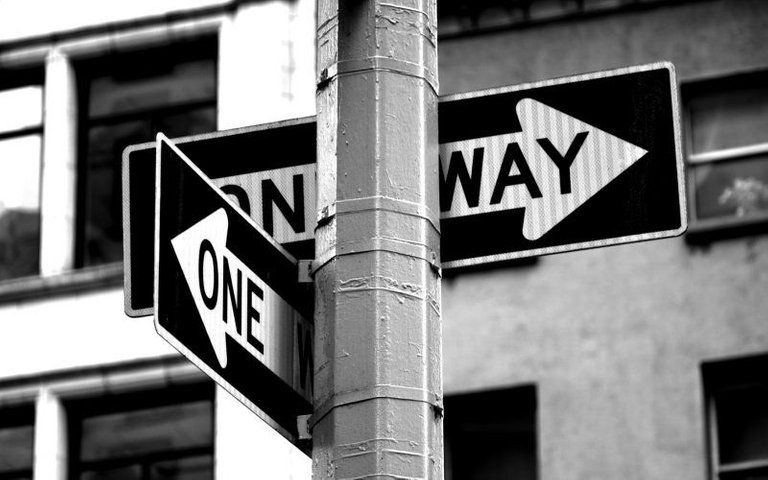
There is no greater failure than to do what was planned, elaborated, studied, and sacrificed so much time to make it work. Precisely this is what happened with the "microutipies" that the world left has managed to implement. The mechanisms, not very different from the focus of the Marxist utopia, are not linked in the class struggle nor in the political parties to generate a significant change in the economic, political and social structures of the country.
On the contrary, the international left decided to generate these changes in the structures through small utopias that find an oppressor-victim relationship but that do not necessarily fulfill the real meaning of the maximum utopia. Among these relations, we find third-wave feminism, ecologism, anti-capitalism. All these minority movements but at the same time with enough social charge to make significant changes in the basic structures of a society.
How did we get to this point?
The economic, political and social collapse of the Soviet Union in December 1991, the Marxist utopia carried out to its fullest by its leaders: Lenin and Stanly, the paradise for anyone who believed in social equality without perceiving the creation of inequalities between a bourgeois class created to rule and an egalitarian society created to serve. Something that many do not know is that Marx himself expressed in the communist manifesto that in order to solve the fundamental problems of the proletariat, oppressed by the capitalist bourgeoisie, a substitution in the pillars of society was necessary and therefore some workers, whose yearning for power could not have been more than a representation of greed and greed, would have to substitute the bourgeois class with a proletarian bourgeoisie.
This fall of the greatest utopia, of the "dream" made reality of any Marxist was nothing more than a failed social experiment that ended up creating a privileged class and in relation to the recorded data: 800,000 prisoners were executed for criminal or political crimes (usually for dissenting in any way from the revolution), some 390,000 people died in forced relocations and around 1.7 million died in gulags (Labor Camps). Almost 3 million victims including children and women. Gulag Archipelago written by Aleksandr Solzhenitsyn offers us the opportunity to know the true side of Soviet communism.
Lenin and Trotski were victorious in implementing Marx's ideas, they had already learned from the French experience of Robespierre, Babeuf's error and August Blanqui's strategy in 1848 and 1871. Undoubtedly, these characters devised a mechanism of social control over and above what they had ever imagined: taking advantage of state weakness, government paralysis and the revolutionary Zeitgeist to deliver a coup d'état in the name of the "people," and imposing a dictatorship that unleashed class warfare to laminate the enemy through selective liquidation or civil war.
However, that same strategy that worked to achieve and retain power collapsed for the left in the 1960s after the episodes of Hungary in 1956 and Czechoslovakia in 1968. It is true that the New Left was made up of the well-maintained bourgeoisie, romantic literates, professors with ínfulas and coffee journalists who dissented from Soviet methods of achieving utopia, given its totalitarian and oppressive character. However, that new left-wing that proclaimed that "another world is possible" remained subject to the idea of the general transformation of social and economic structures, but from a totally different approach to the Soviet.
The propaganda work of the communist powers in Western societies had a great effect. They followed the model of the Stalinist Willi Münzenberg of mediatic indoctrination, who convinced or bought the cultural elite to do a "good deed" for the good. The generation of May '68, the so famous generation of '68, named after a series of protests held in Paris, France (Again the French). This generation truly believed that the future of the world was at stake in Vietnam, in Africa or in the "backyard of America," unlike the trade unions of the time, who knew that their presence was at stake in their company and with their government. Those leftists believed that there was a "global struggle" against capitalist imperialism influenced mainly by Gramsci and his writings on the Southern question.
This reborn of the utopia from another approach, contradicted by its load of flower power and violence at the same time (one only has to read Fanon or Malcolm X), carried, however, the germ of its own division. The phenomenon broke out in 1989. The socialists sought themselves in the past from an illusion, which Furet wrote, and searched for new projects. The issue was serious since communism only works if the party presents a utopia that is capable of mobilizing people, demanding the sacrifice of militancy, and seeking obedience and hierarchy for "the cause. Without "cause," there is nothing the party can maintain, and precisely, in the end, it ends up sinking because the same people after decades without actually seeing the embodied cause stopped believing in that "cause.
The key to this new generation of utopians was to turn the question of class struggle into any question. And even more: that it was not a political party, a great generator of "oligarchs, bourgeoisie, and collaborators of Capital", but the social movements. This new actor had several benefits in front of a party: he always had the press on his side, while at the same time he could function with few resources and achieve great results.
The Social Forum of Porto Alegre, in 2001, was a representation of that leftist strategy whose purpose was to change the world through microutopias. This forum was held to highlight the great evils of the world: globalization and neoliberalism, which was the new form of imperialism as the last phase of capitalism described by Lenin. According to this idea, which has nothing to do with neoliberalism, the powers had imposed a single political and economic formula on the whole world with the Washington consensus, liberal democracy, which put local markets, the people, at the service of the interests of the powerful countries.

In that Brazilian city governed by a left-wing coalition in the hands of the Workers' Party, trade unionists, ecologists, intellectuals, supporters of the Tobin tax, feminists, members of NGOs, indigenists, and other "banished" from welfare met. They debated how to distribute wealth, combat inequalities, promote a return to the local economy and sustainable development, to the small market, to handicrafts and trade unions, as a means of getting rid of the living conditions to which "savage capitalism condemns". For them the new democratic era, social and egalitarian democracy, which returned people to "power" through elections after elections dominated by the same Soviet propaganda power to keep people under the same parameters of a privileged bourgeoisie chosen by the people and an increasingly egalitarian society of mind and stomach. The new democracy, which repudiated big business and rewarded any attempt at collectivism.
The means of struggle should not be violent, because with it was lost the battle of communication, something that had been learned from the great demonstrations for civil rights in the U.S. in the 1960s. The ways of fighting had to combine supposed spontaneity with spectacle; that is to say, it had to appear before the cameras that in front there were people who really suffered, an example of great values and with the desire to increase the common welfare against the powerful. They were the instruments of social movements since the 1980s: unconventional demonstrations (disunited women acclaiming respect for women), costumes, performances, among others. Non-conventional forms of protest to which the media could not be ignored because they were too attractive.
Between them, the "microutopias" were placed on the political agenda. It was the return of the reactionary left, as the people of Porto Alegre prayed, but little by little, conquering consciences, with public policies, with the installation of truly official ministries in the purest Orwellian style.
There are never enough bicycle lanes, there are never enough green areas, there is never enough gender equality, the big companies are not sufficiently supervised, there is no fair payment, wealth is not well distributed, the economy is not well sustainable, ethnic minorities are not respected, or sexual diversity is well visible. For them, it is either all or nothing.
Social engineering has triumphed, and to talk about this is nothing more than being a conspiracy that needs the friendly hand of a psychiatrist because in the world in which we live today critical thinking has been destroyed by microtuopia. Today it makes more sense for a woman to create a dog and live like a dog than for someone to criticize something from reason and pure logic.
There is no party that does not carry it in one way or another in its program, or public office of first line that dares to contradict the need to be fulfilling those microutopias. The way in which History, Progress, the human being, society, culture, civilization and their values are interpreted has been set aside to find a new meaning in "justification", that is, the actions of every being belonging to the oppressive group will be justified, but if you are not part they will not be. Yes, gentlemen, this is the new world, the microutopian world.
 Posted from my blog with SteemPress : Here
Posted from my blog with SteemPress : Here 
Curated for #informationwar (by @commonlaw)
Our purpose is to encourage posts discussing Information War, Propaganda, Disinformation and other false narratives. We currently have over 8,000 Steem Power and 20+ people following the curation trail to support our mission.
Join our discord and chat with 200+ fellow Informationwar Activists.
Join our brand new reddit! and start sharing your Steemit posts directly to The_IW!
Connect with fellow Informationwar writers in our Roll Call! InformationWar - Contributing Writers/Supporters: Roll Call Pt 11
Ways you can help the @informationwar